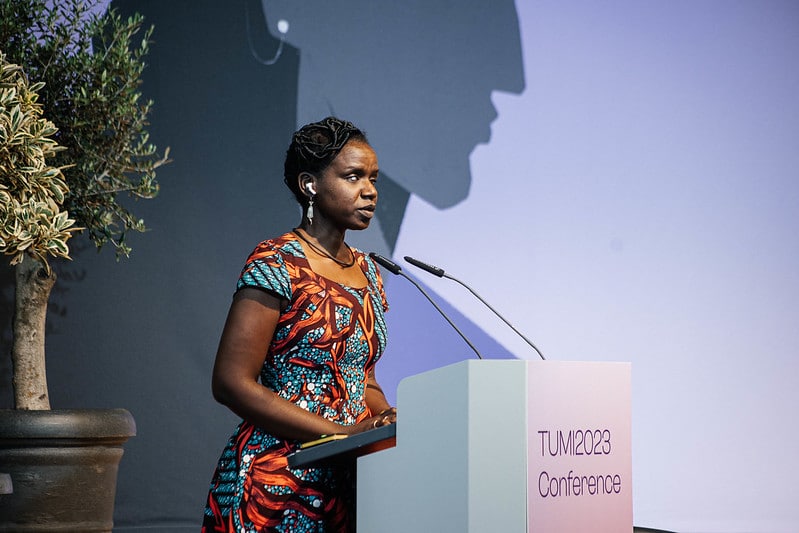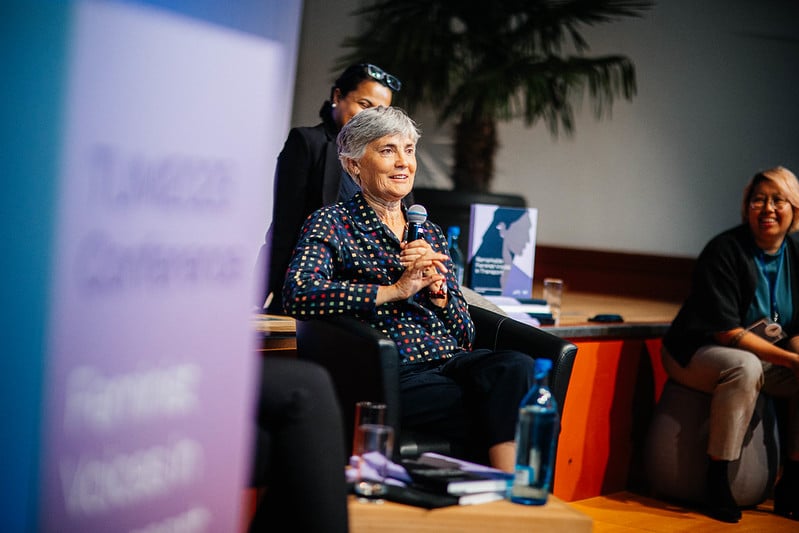On the Talking Transport Transformation podcast, we had the privilege of speaking with Laura Ballesteros Mancilla, a public policy and regulation expert. She is also the co-founder of Mujeres en Movimiento (Women in Motion), a network that connects advocates of gender-sensitive mobility across various sectors in Latin America. While commemorating the 5th anniversary of both networks, we sat down with Laura to reflect on the past five years and how both networks have grown alongside each other. This anniversary is not a coincidence but rather due to shared history. Women in Motion was founded in the wake of the inaugural Women Mobilize Women TUMI Conference in 2018. During the interview, we discussed the violence and underrepresentation faced by women in transport and the transformative power of networks like Women in Motion and Women Mobilize Women.
Investing in women means investing in the future of cities
Latin America’s transport and governmental sectors have long been dominated by men, creating an environment where women face both violence and underrepresentation, whether they are commuting or at the decision-making table. Laura’s powerful message to women is a beacon of hope, emphasizing that women are not alone. She encourages female leaders by saying that any resistance they face reflect the importance of the change they seek to realize.
In the podcast, Laura draws on her experiences as a congresswoman in Mexico City, advocating for women’s empowerment in transport planning. She emphasizes the critical role women play in shaping mobility, an aspect often overlooked in urban infrastructure: As women undertake more than 50% of journeys in cities, often tied to the mobility of care, the need for gender-specific planning, budgeting, and decision-making processes becomes evident. Because women are less likely to have access to cars than their male household members, they do most journeys by walking or public transport, frequently occupying public space and public transport. Investing in better and safer public spaces as well as non-motorized transport is the logical consequence to her:
If you invest in sustainable mobility, you invest in women.
With women’s expertise on public space, it is evident to Laura that more decisions on urban mobility need to be taken by women.
“When we create together, we are unstoppable”
Women in Motion has over 200 members already. Together, they have created a leadership programme, a mentoring network, and a knowledge creation and sharing platform. “When we create together, we are unstoppable”, Laura says with enthusiasm, while also pointing out the value of mutual learning. Lately, her network has been very happy to learn more about sustainable financing.
In the five years of its existence, Women in Motion has grown quickly. The network is now focusing on starting a community of practice. This year, it will start a new chapter in Asia with the goal of expanding while sharing insights and learning from other countries and cities. Laura’s message to women everywhere is:
You are not alone. We are stronger together, and we have to break the patriarchal pact, taking these first steps of collectiveness.
Listen to the episode below or head to TTT on Podigee!
Laura Ballesteros Mancilla was awarded as one of the Remarkable Feminist Voices in Transport 2023. Find her profile here.
You are currently viewing a placeholder content from Podigee. To access the actual content, click the button below. Please note that doing so will share data with third-party providers.
More Information


